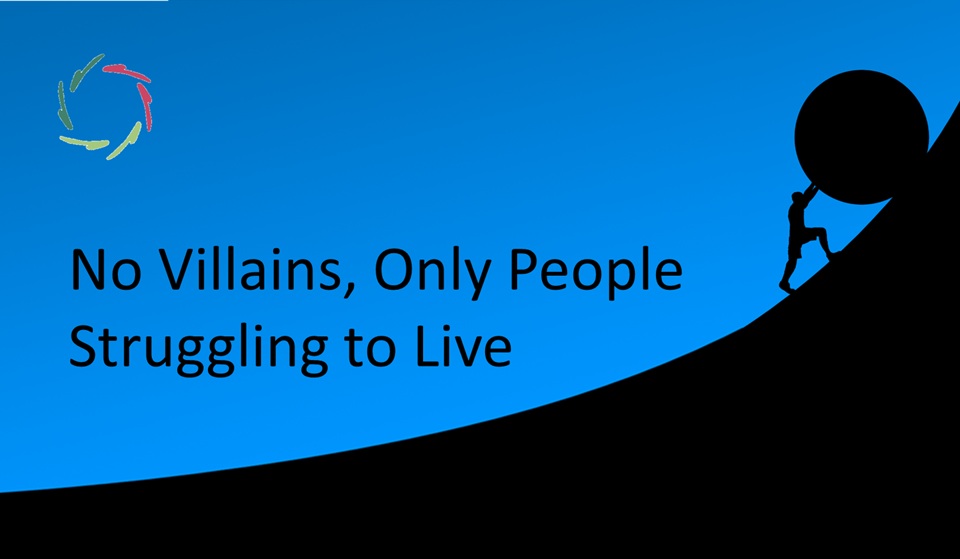Why Death Penalty is Murder

Taking into account full human being, there is no relevant difference between the accused and the accuser.
‘Taking conscious human life’
This is a quite good definition of murder. In case of the death penalty, it’s murder with full premeditation.
In ‘taking,’ one can see a relevant fuzziness which makes thinking about, for instance, euthanasia important. Can one ‘take’ one’s own life? One can end it for sure.
To ‘take’ it means that it’s not already yours.
Is it of ‘God’? Which one (of millions)? Would the real one care, or if indeed, would he care more for an abstract notion of life than for conscious suffering? Who says? Who knows?
Who has the hubris to tell others?
There is no rationality in this. Nor any decent poetry. Actually, I see only and merely ego, the actions of anxious individuals. [see: “Difference between Fear and Anxiety”]
The full human being
should be taken into consideration, always.
It’s not ethical to think about human being, in any circumstance, as only the tiny part which is ‘ego’. [see: “The Story of Ego”] Full human being is immensely much more. One can feel this best within oneself through communicating with it. [see: “Dancing With the ‘Deeper Self’”] Or take any of the 1000+ AURELIS exercises.
Fully taking into account the full human being changes everything, from healthcare to politics to religion to so much more, including:
death penalty.
A certain person has – in most cases only very probably – committed an atrocity, such as murder. People agree that this deserves death. The sociocultural environment makes them do so. Simply: another culture (time, place) -> no death penalty.
Culture engenders death penalty.
As, in the same vein, culture engenders the atrocity itself. No baby is born with the idea “Gosh, now I’m in this world, I will grow up to become a murderer.” The cultural environment makes him so, murder of any kind being part of this.
Or he might become a judge.
Who’s responsible for the cultural environment?
‘Guilty’ only makes sense in a mere-ego-world.
[see: “Always Responsible, Never Guilty”]
Let alone the ultimate penalty.
Protecting people and society at large
Apart from revenge and other crazy motivations for legalized murder, this may indeed be a sensible argument: inflicting injury and suffering to avoid more injury and suffering. After all, that’s why the surgeon takes his scalpel.
One should thread this very carefully.
The death penalty may heighten aggression and the commitment of atrocities in that specific society, in many covert ways. I do think this is the case.
It’s not because something is covert that it’s not real, nor unreal.
One needs to think it over, very much.
A deluge of scientific data points to the fact that the present view on human being as it lives in most of Western culture – from healthcare to etc. – is strongly outdated. This is related to what I, again and again, refer to as ‘the subconceptual’ or ‘deeper self.’
No mumbo-jumbo. Science of the highest quality and replication.
Jurisdiction which doesn’t take this into account isn’t worthy.


